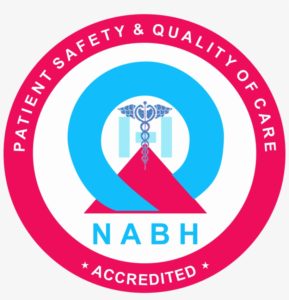MANAGING A HIGH-RISK PREGNANCY

God has given a unique ability to Women; she can bring new life to the world. Delivering baby is a natural process. After a full-term pregnancy, a woman goes into labor on or near her due date and gives birth to a healthy baby. A day or two later she leaves the hospital to begin day-to-day life with her growing family. But not all pregnancies go smoothly. Some women experience what doctors refer as a high-risk pregnancy.
A pregnancy is considered high-risk when there are potential complications that could affect the mother, the baby, or both. High-risk pregnancies require management by a specialist to help ensure the best outcome for the mother and baby.
Risk Factors for High-Risk Pregnancy
Maternal Age
One of the most common risk factors for a high-risk pregnancy is the age of the mother-to-be. Women who will be under age 17 or over age 35 when their baby is due are at greater risk of complications than those between their late teens and early 30s. The risk of miscarriage and genetic defects further increases after age 40.
Medical conditions- before pregnancy
Conditions such as high blood pressure; lung, kidney, or heart problems; diabetes; autoimmune disease; sexually transmitted diseases (STDs); or chronic infections such as human immunodeficiency virus (HIV) can present risks for the mother and/or her unborn baby. A history of miscarriage, problems with a previous pregnancy or pregnancies, or a family history of genetic disorders are also risk factors for a high-risk pregnancy.
Medical conditions- During pregnancy
Even if you are healthy when you become pregnant, it is possible to develop or be diagnosed with problems during pregnancy that can affect you and your baby. Two of the more common pregnancy-related problems are:
- Preeclampsiais a syndrome that includes high blood pressure, urinary protein, and swelling; it can be dangerous or even fatal for the mother or baby if not treated. With proper management, however, most women who develop preeclampsia have healthy babies.
- Gestational diabetesis a type of diabetes that develops during pregnancy. Women with gestational diabetes may have healthy pregnancies and babies if they follow the treatment plan from their health-care provider. Usually the diabetes resolves after delivery. However women with gestational diabetes are at increased risk of developing type 2 diabetes.
- Liver Diseases Pregnancy hormones can cause minor derangements in the liver function tests your doctor will guide you on the precautions which you need to take as would be a mother.
- Heart Diseases During pregnancy, changes occur to the heart and blood vessels. These changes put extra stress on a woman’s body and require the heart to work harder. The changes cause fatigue, shortness of breath and light-headedness. All of these symptoms are normal, but you should talk to your doctor. If you have a pre-existing heart condition you may need to take special precautions before and during pregnancy. Kindly do not hesitate to share vital information.
Pregnancy-related issues
Often a pregnancy is classified as high risk because of issues that arise from the pregnancy itself and that have little to do with the mother’s health. These include:
- Premature laboris labor that begins before 37 weeks of pregnancy. Although there is no way to know which women will experience preterm labor or birth, there are factors that place women at higher risk, such as certain infections, a shortened cervix, or previous preterm birth.
- Multiple birthsmeans you are carrying more than one baby (twins, triplets, quadruplets etc.). Multiple pregnancies, which are more common as women are using more infertility treatments, increase the risk of premature labor, gestational diabetes, and pregnancy-induced high blood pressure.
- Placenta previais a condition in which the placenta covers the cervix. The condition can cause bleeding, especially if a woman has contractions. If the placenta still covers the cervix close to delivery, the doctor may schedule a cesarean section to reduce bleeding risks to the mother and baby.
- Fetal problems,which can sometimes be seen on ultrasound. Approximately 2% to 3% of all babies have a minor or major structural problem in development. Sometimes there may be a family history of fetal problems, but other times these problems are completely unexpected.
- Rh Negative, Rh factor becomes important during pregnancy. Rh incompatibility symptoms in your unborn baby can range from mild to life-threatening. This can be prevented the effects of Rh incompatibility by getting an injection of Rh immune globulins.
Preventing and Treating Pregnancy Complications
Even if you don’t have an existing health problem, many doctors recommend a preconception appointment to ensure you are as healthy as you can be before you become pregnant. At this appointment your doctor may recommend steps you can take to reduce the risk of certain problems. These include:
- Getting at least 400 micrograms of folic acid daily beginning before and continuing through pregnancy
- Getting proper immunizations
- Eating a healthy diet and maintaining proper weight
- Getting regular physical activity, unless advised otherwise by your doctor
- Avoiding cigarettes, alcohol, and drugs (except for medications approved by your doctor)
- See your doctor regularly
If your pregnancy is considered high risk, your doctor may refer you for specialized maternal-fetal screenings to ensure the best possible outcome for both you and your baby. If you have a medical condition, it’s important to consult your doctor before you decide to become pregnant. Your doctor may run tests, adjust medications, or advise you of precautions you need to take to optimize the health of you and your baby.
Precautions in high-risk pregnancy?
Consult your obstetrician about how to manage any medical conditions you might have during your pregnancy and how your health might affect labor and delivery. Ask your doctor to discuss specific signs or symptoms to look out for, such as:
- Vaginal bleeding
- Severe headaches
- Pain or cramping in the lower abdomen
- Watery vaginal discharge — in a gush or a trickles
- Regular or frequent contractions — a tightening sensation in the abdomen
- Decreased fetal activity
- Pain or burning with urination
- Changes in vision, including blurred vision
Find out which signs or symptoms should prompt you to contact obstetrician and seek emergency care. A high-risk pregnancy might have ups and downs. Do your best to stay positive as you take steps to promote a healthy pregnancy.






